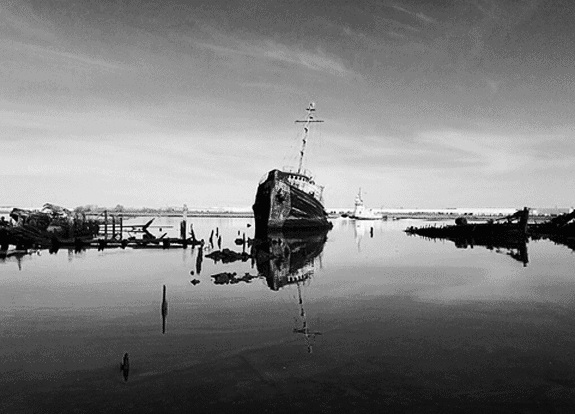Gillian Webster
Writer
Novel Extract
Donor #149
Prologue
September 19, 2001
The sign on the wooden hut read, ‘Hi, I’m from––– Shut up and pick up a rake!’ Beneath the sign, propped in a line, were beat-up metal shovels, pitchforks, and rakes waiting for the next taker.
Randall Carver stared at the piles of tortured steel, twisted aluminum cladding torn away like sheets of Reynolds Wrap. The ground was a mess of mud and gravel, pieces of things too smashed to identify. Hydraulic grapplers worked mountains of rubble, fetid sludge trapped in caterpillar treads, open jaws monstrous. The stench was unbearable, the cloying sweet odor of rancid decay overlaid with an artificial masking scent of pine that did nothing to help. Randall slipped a tub of Vicks VapoRub from his pocket, coated the rim of each nostril, pulled up his hood and headed to the Exclusion Zone.
At one time, Fresh Kills was the largest landfill in the world. Had it carried on operating, it could have become the highest point on the Eastern seaboard. The day after the attack on the Twin Towers, a section of the site was put at the disposal of the recovery effort. Every day, trucks arrived transporting more debris from Ground Zero, while in the distance lower Manhattan smoldered, the skyline changed forever. Barges bearing tons of rubble, dust, and mangled vehicles departed for the pier on Staten Island. The cargo was dumped into a holding pit before being transported to the debris field in an area known as ‘the hill.’
Randall Carver would be working in the Small-Debris Sorting Area, a conveyor belt housed inside one of several tented structures. Men and women in white coveralls and respirators stood for hours on end sifting debris by hand, searching for personal effects. Alongside detectives, FBI agents, and firefighters stood medical volunteers like Randall, honoring the fallen with their time.
Defeat was a risk from the outset; the task a lot like landing on the moon and being asked to create a beautiful garden from the barren lunar surface. But Randall Carver dug in. A reproductive endocrinologist by profession, a man of infinite patience, here he was simply a volunteer, an expert eye tasked with identifying human remains. Any fragment that might provide enough DNA to give a grieving family something to bury, a grave to visit, a place to pray.
In addition to pieces of bone or tooth and other remains, the sifters found personal items, too. There were rings and jewelry, house keys and credit cards. These slivers of plastic seemed particularly indestructible. Sometimes all a loved one got back was a frequent flyer card. But it was something. For months the sifters carried on until the debris field dried up.
Days at Fresh Kills were long and tiring. Mid-shift, Randall would take a break, moving away from the noise and activity to stare out over the massive site. The scale was mind-blowing to a first-time visitor. The farther he looked, the bigger the landscape grew, and everywhere the debris fields piled high. No color, just a damp, and muddy gray. Fresh Kills by name had become fresh kills by nature: a last resting place, a massive cemetery.
At its tattered edges, trash mounds gave way to salt marsh. Decades of landfill operation had robbed it of its biodiversity, and now it teemed with six-foot-high reeds. The wildlife had become a monoculture of feasting seagulls in the air and rats on the ground, packs of scavenging dogs. But there were big plans to change that, and when the transformation was complete the nature reserve would be three times the size of Central Park.
In the mess hall one day, Randall stood in line behind a volunteer in a green sweatshirt. The words, ‘Opus Dei,’ meaning simply ‘God’s work’ were printed on the back below the legend: ‘Staten Island WTC Recovery.’ Randall imagined the man a firefighter paying his dues to fallen brothers. What he hadn’t banked on was a tenuous connection to this stranger. After lunch, they took a walk. The man talked with authority about the impact of climate change on the landscape around them, one of Randall’s hobby horses. Amidst the rubble and contaminated mud, a friendship was forged, and they met often after that.
Weeks later, with the brackish water of the salt marsh lapping at the steel toes of their work boots, the man pointed to a sodden nest. The tide was rising fast, and the near-naked ball of gray-pink fluff shivering in the nest’s grassy heart would soon be as good as drowned. This was climate change in motion, the man said, something you’d never hear the politicians talk about. First, it would threaten nature and then it would come for humans. The man’s words echoed in Randall’s ear, and a germ of an idea began to form. The germ would lodge, tendrils unfurling, until it wouldn’t let go. Carefully, Randall moved the nest to higher ground. As soon as his back was turned, the man kicked the nest over, and the salt marsh sparrow began to drown.
The initial sifting effort lasted ten months, ending on July 15th 2002 with over 400 souls identified. Drawn to its desolate beauty, Randall Carver would return to Fresh Kills, month after month, he and his shadow, trespassing on hallowed ground, one single thought persisting: If a man had a mind to, he could disappear out here.
